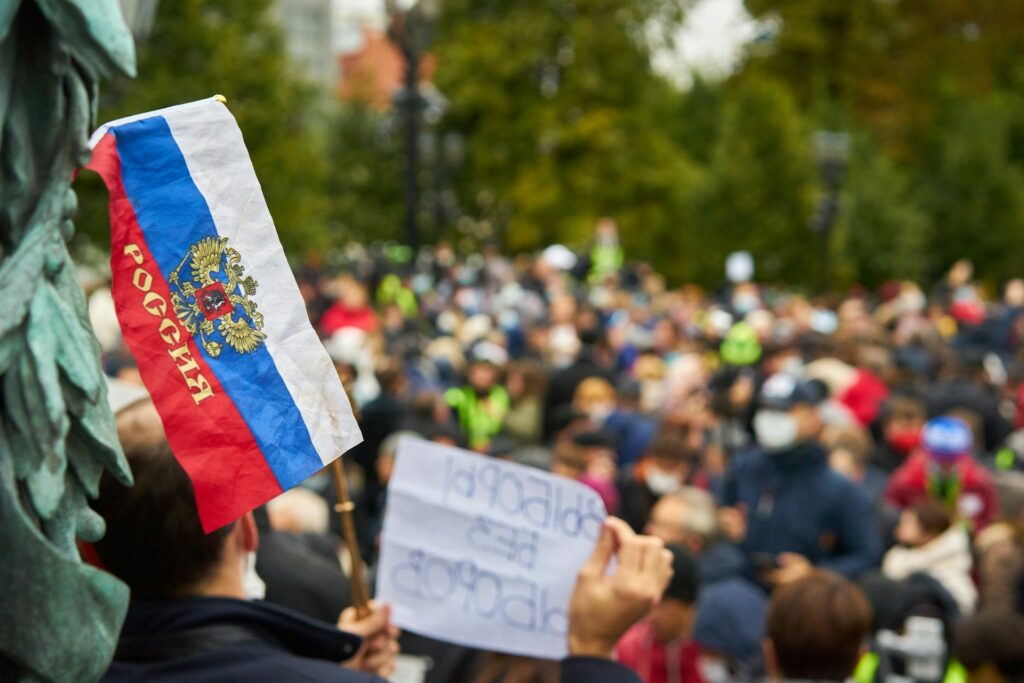
Moscow – Igor Kirillov, the head of Russia’s Radiation, Chemical, and Biological Protection Troops, has died in an explosion in Moscow. Kirillov, a polarizing figure, was accused by Western governments of directing the use of chemical weapons on Ukrainian battlefields. Within Russia, however, he was celebrated as a staunch patriot dedicated to exposing what the Kremlin labeled as Western “crimes.”
The blast, which reportedly killed Kirillov and an aide, occurred in southeastern Moscow on Ryazansky Prospekt. Russian officials allege the explosion was caused by explosives hidden in an electric scooter outside Kirillov’s residence. Ukraine’s SBU security service has suggested it orchestrated the operation, calling it a strike against a “war criminal” and a legitimate target.
A Legacy Shrouded in Controversy
Kirillov, who led Russia’s Timoshenko Radiation, Chemical, and Biological Protection Academy before heading the army’s Radiation, Chemical, and Biological Protection Troops in 2017, was a prominent and controversial figure. The UK Foreign Office had labeled him a “significant mouthpiece for Kremlin disinformation,” a reputation bolstered by his outlandish briefings on alleged Western and Ukrainian activities.
The Russian Defense Ministry describes the role of the force Kirillov commanded as identifying hazards, protecting troops from contamination, and employing “flame-incendiary means” to inflict damage on enemies. This latter capability likely refers to Russia’s use of thermobaric weapons, which have been criticized internationally.
Western officials have accused Kirillov’s unit of deploying chemical weapons in Ukraine. The UK specifically highlighted the alleged use of riot control agents and toxic choking agents such as chloropicrin. Ukraine’s SBU also linked Kirillov to thousands of instances of chemical munitions use since the Russian invasion began in February 2022, citing drones and grenades as delivery methods.
On the eve of his death, the SBU announced it had named Kirillov in absentia in a criminal case related to the “mass use” of prohibited chemical weapons on Ukraine’s eastern and southern fronts.
Spreading Misinformation During Wartime
Kirillov became infamous for making unfounded claims during the conflict, often targeting Ukraine and its allies. Early in the war, he alleged that the United States was operating biological weapons labs in Ukraine, a narrative dismissed by independent experts. He presented documents in March 2022, which he claimed were seized during the invasion, to support these assertions. The claims were amplified by Russian state media but debunked by international observers.
Over the years, Kirillov repeated accusations that Ukraine sought to develop a “dirty bomb,” alleging Western complicity in these efforts. His assertions were widely condemned as baseless by Western nations. Ukrainian President Volodymyr Zelensky responded by warning that such accusations might indicate Russia’s own intentions to employ such weapons.
Kirillov’s rhetoric extended to alleging chemical weapons violations by Ukraine, including claims of discovering a chemical weapons laboratory near Avdiivka. He accused Kyiv of breaching the Chemical Weapons Convention (CWC) with the assistance of Western nations. These allegations were widely dismissed as disinformation.
Fallout from a Shocking Death
Kirillov’s death has sent shockwaves through Russia’s political and military establishments. A minute of silence was observed in the State Duma, Russia’s lower house of parliament, and several high-ranking officials expressed their condolences. Konstantin Kosachev, deputy speaker of Russia’s upper house, described the general’s death as an “irreparable loss.” Retired general and current MP Andrei Gurulyov vowed that the killing would not go unanswered.
The incident has also sparked fears about Ukraine’s capacity to target key figures in Moscow. Pro-Kremlin commentators have speculated about the involvement of Western intelligence services, with Russian war correspondent Sasha Kots suggesting that enemy agents may be operating within Russia.
As investigations continue, Kirillov’s death has underscored the growing reach of the conflict and its escalating personal and political stakes. While Russia mourns one of its top military figures, the international community continues to grapple with the broader implications of his controversial legacy.